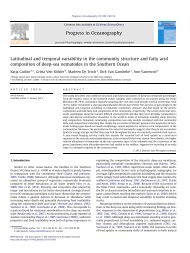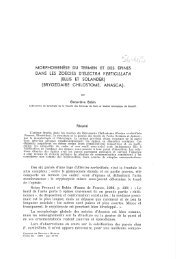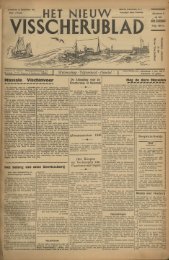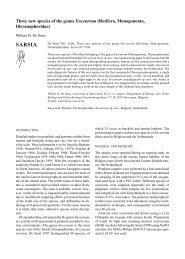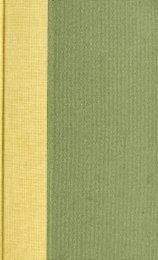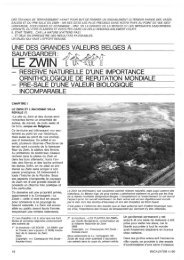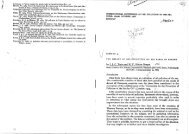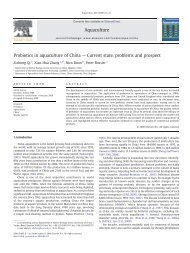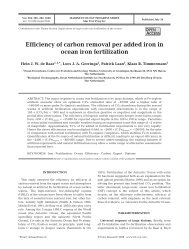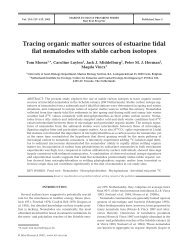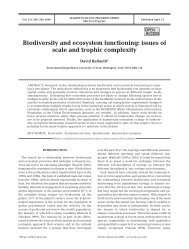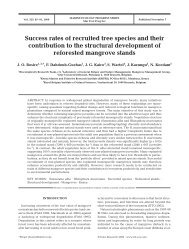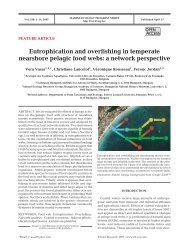Create successful ePaper yourself
Turn your PDF publications into a flip-book with our unique Google optimized e-Paper software.
12<br />
shown that such a precaution Is unnecessary. From the<br />
time these <strong>fisheries</strong> came under the Company's management,<br />
no such means of preservation have been adopted<br />
and no instance of depredation has ever been detected or<br />
suspected. The <strong>fisheries</strong> have latterly yielded five hundred<br />
per cent, more to us than they did to the Dutch<br />
Government. It hence follows that the means by which<br />
the Dutch exercised that sovereignty in the bay is not<br />
necessary to the prosperity of their <strong>fisheries</strong> and ought<br />
not therefore to be permitted.<br />
"With no landed possession but that upon which<br />
the fort of Tuticorin stands and with no power of jurisdiction<br />
even in the village of Tuticorin or any other, with<br />
no means of supplying themselves with the common<br />
necessaries of life, but from the Company's districts and<br />
no divers to work in the <strong>fisheries</strong> but those who inhabit<br />
the Company's villages, it is very evident that to make<br />
the possession of Tuticorin desirable to the Dutch or the<br />
<strong>fisheries</strong> upon the coast of Tinnevelly a source of revenue<br />
to them depends upon the disposition of the British<br />
Government to befriend them.<br />
" Though not possessed of any territory within<br />
Tinnevelly district except the small spot about i,ooo<br />
yards square on which the fort of Tuticorin stood, the<br />
Dutch claimed the right to the pearl and chank <strong>fisheries</strong><br />
on the coast of Tinnevelly, half the proceeds of which<br />
they paid to the Nawab in consideration of being allowed<br />
the sovereignty over all the Parawars in the district and<br />
the right to employ the manufacturers of cloth to the<br />
exclusion of all other European nations."<br />
From 1801 when the sovereignty of the Carnatic<br />
passed from the Nawab to the East India Company we<br />
have complete records of the net proceeds of each<br />
season's chank fishery ; the table appended gives the<br />
yearly net revenue together with the amount yielded by<br />
the pearl <strong>fisheries</strong> held during the same period. Refer-<br />
ence to this shows that during the first 27 years of<br />
British administration the chank fishery enjoyed a period<br />
of unexampled prosperity. During the whole of this<br />
period on one occasion only did the net revenue fall<br />
below Rs. 17,000 per annum, while in 13 years the net<br />
profits exceeded Rs. 30,000 per annum. The most prosperous<br />
season was that of 1824-25 when the net revenue



